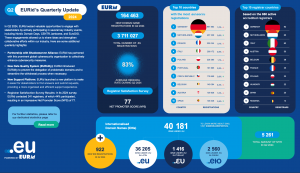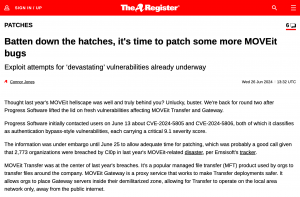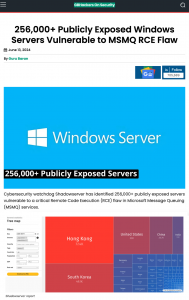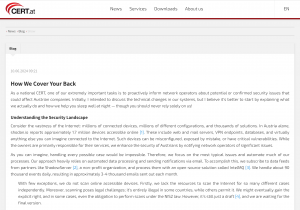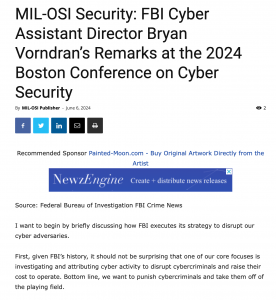foreignaffairs.co.nz, June 6, 2024
First, given the FBI’s history, it should not be surprising that one of our core focuses is investigating and attributing cyber activity to disrupt cybercriminals and raise their cost to operate. Bottom line, we want to punish cybercriminals and take them off of the playing field.
Next, we must gather and operationalize domestic intelligence to bolster victim recovery and support operational activity, or, as we say, we must pressure the common threats we face. We pressure these common threats by initiating joint and sequenced operations and on network operations to fight back against cyber adversaries from a domestic position and as a foothold for USIC [U.S. Intelligence Community] partners to engage. It’s an all-tools/all-partners approach. When I say “all-partners,” I mean it. We look to partner with domestic and global partners in both the public and private sectors. This is how we have the most significant impact on our adversaries.
For instance, in January, the FBI Field Office here in Boston led Operation Dying Ember, an international effort against Russian military intelligence: the GRU. In this case, the GRU was taking advantage of a botnet to target the U.S. government, cleared defense contractors, NATO allies, and the Ukrainian aid shipment network. Our court-authorized technical operation kicked the GRU off more than 1,000 home and small-business routers belonging to unwitting victims all over the world—including here in Massachusetts.
This was an operation we could not have accomplished without corporate partners, particularly Microsoft and the Shadowserver Foundation.
By killing the GRU’s access to a botnet they were using to run cyber operations around the world, we both helped to protect unwitting businesses and individuals and put a dent in Russia’s cyber-enabled intelligence operations.


